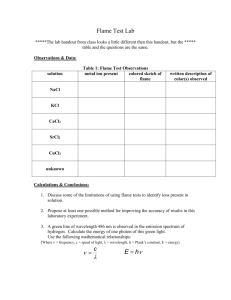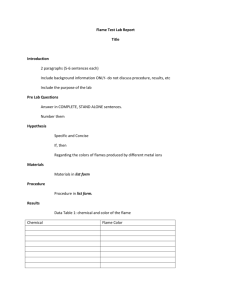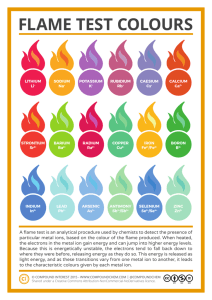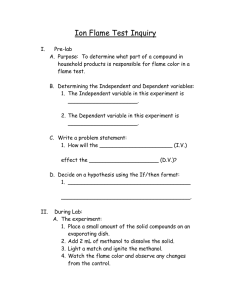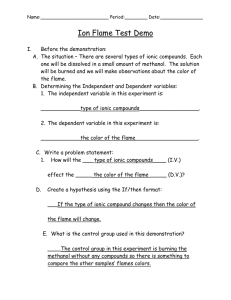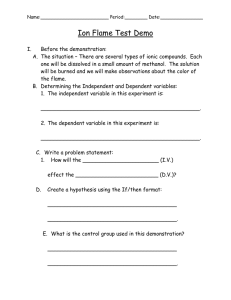Ion Flame Test Inquiry
advertisement
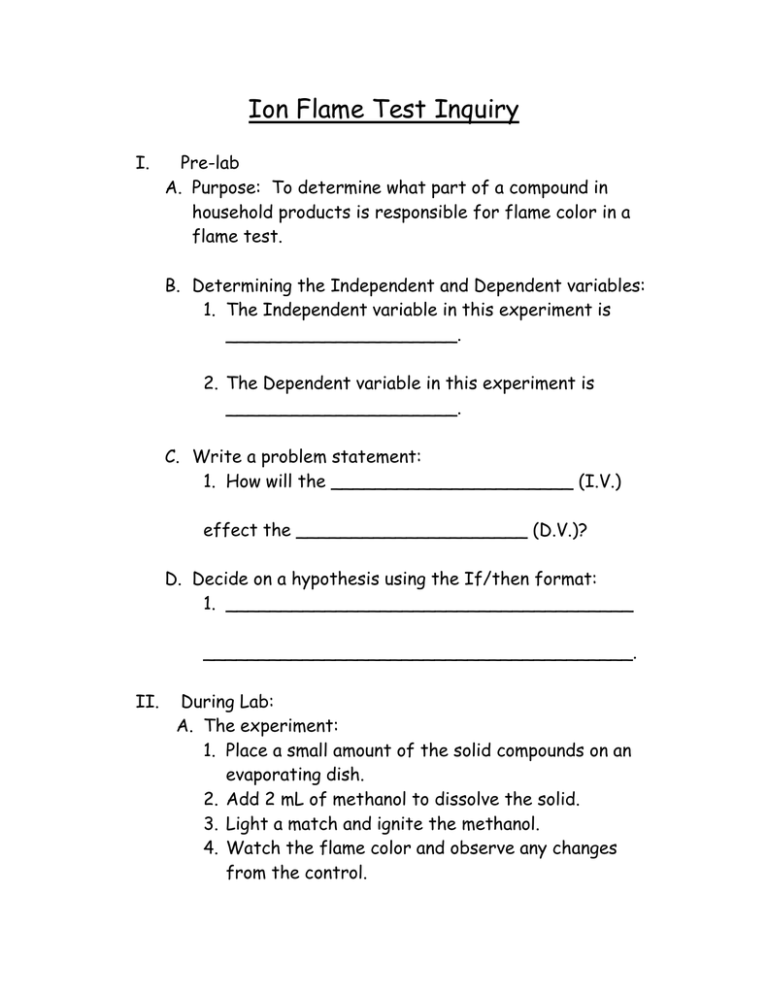
Ion Flame Test Inquiry I. Pre-lab A. Purpose: To determine what part of a compound in household products is responsible for flame color in a flame test. B. Determining the Independent and Dependent variables: 1. The Independent variable in this experiment is _____________________. 2. The Dependent variable in this experiment is _____________________. C. Write a problem statement: 1. How will the ______________________ (I.V.) effect the _____________________ (D.V.)? D. Decide on a hypothesis using the If/then format: 1. _____________________________________ _______________________________________. II. During Lab: A. The experiment: 1. Place a small amount of the solid compounds on an evaporating dish. 2. Add 2 mL of methanol to dissolve the solid. 3. Light a match and ignite the methanol. 4. Watch the flame color and observe any changes from the control. B. Data and Observations Household Compound Product Formula Control ?? Positive Ion None Antacid CaCO3 tablets Eyewash H3BO3 None Plaster of CaSO4 Paris Cream of KC4H5O6 Tartar Epsom salt MgSO4 De-icer CaCl2 Salt KCl substitute Detergent Na2CO3 booster Table salt NaCl Other compounds tested: BaCl2 SrCl2 LiCl CuCl2 CsCl Unknown 1 Unknown 2 Unknown 3 Unknown 4 ? ? ? ? Negative Ion None CO3-2 None SO4-2 C4H5O6-1 SO4-2 Cl-1 Cl-1 CO3-2 Cl-1 Flame What ion test color causes color? None III. Post-lab questions: A. Why is it important to test the flame color of the methanol without any compounds dissolved in it? B. Do the positive ions or the negative ions cause the change in flame color? Explain why based on your observations. C. Which of the compounds would be a good choice for making purple fireworks? What about green freworks? Challenge questions: D. Potassium gluconate (formula = K+C6H11O7-) produces a light purple flame. Copper (II) sulfate (formula = Cu2+SO4-2) produces a green flame. What flame color would you expect for copper (II) gluconate (formula = Cu2+[C6H11O7-]2)? Explain. E. How could you tell the following three white artificial sweetner powders apart using the flame test? You have: 1. Equal (C14H18N2O5, a non-ionic compound) 2. Ace-K (K+C3H4NO4S-) 3. Sweet ‘N Low (Ca2+[C7H4NO3S-]2). F. Boric acid is a molecular, non-ionic compound. Based on its flame test there is a color observed, but is this due to positive ions or negative ions? Why? ***TURN IN THESE ANSWERS IN ON A SEPARATE SHEET OF PAPER BY JANUARY 15th, 2008 TO WIN A PRIZE FOR CORRECT ANSWERS.
